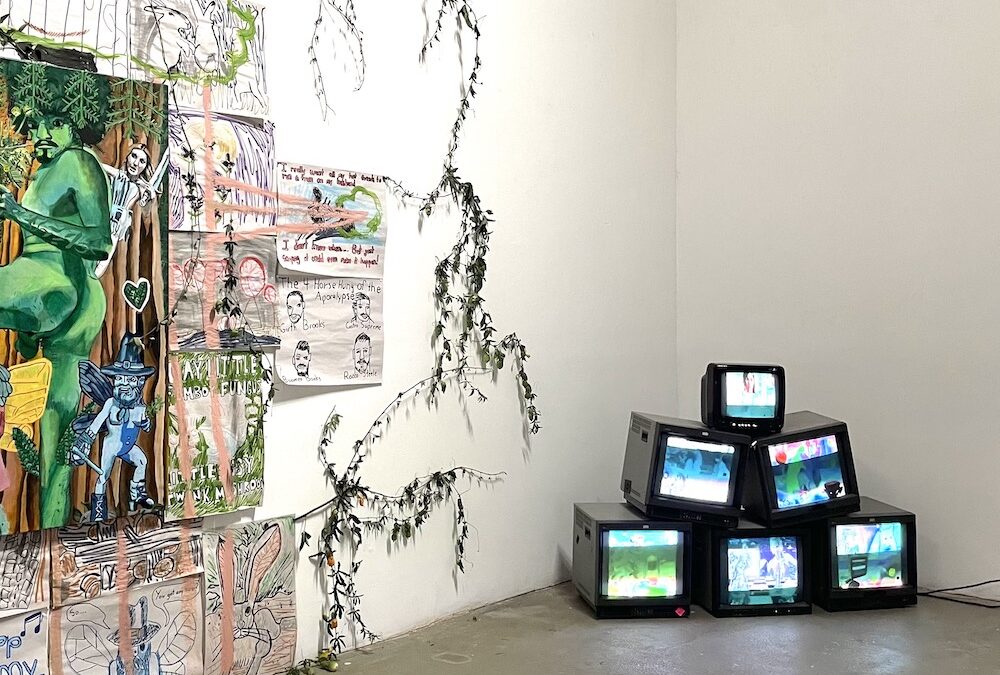On a rainy Saturday in early November, I spent the better part of an hour sitting cross-legged inside an XL dog crate. I did so in order to watch the screens mounted to the crate’s interior that broadcast Matthew Lax’s two-channel video, A TIRED DOG IS A GOOD DOG,...




